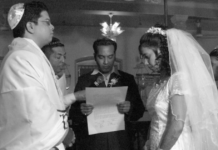
Various groups frequently oppose the way specific subjects are presented in school textbooks. Most recently, McGraw-Hill apologized for using the phrase “the Atlantic Slave Trade” to describe slavery in its World Geography textbook: “The Atlantic Slave Trade brought millions of people from Africa to the southern United States to work on agricultural plantations between the 1500s and 1800s.” The Texas review panels found nothing wrong with the textbook; it was only after people began to bring out the obvious misunderstanding that slaves were somehow equal to wage earners that the publisher apologized.
Protests against the portrayal of a particular group or nation, on the other hand, are significantly less likely when they coincide with efforts to maintain or enforce a specific historical narrative in the country in question. That is when an international nationalist narrative is imposed on how that country and its people are depicted to Americans. It’s not only a problem of academic freedom in these cases; it’s also a matter of Americans being raised to perceive the world in the ways that politically powerful groups in other countries want their country to be understood. Importantly, what is being pushed on our education is merely one version of a contested story in which one group ultimately prevails, typically based on relative power rather than fact.
Source: https://www.huffpost.com/entry/india-israel-bring-their-disputes-over-history_b_9657030




